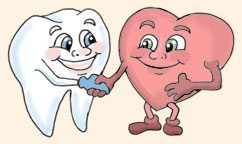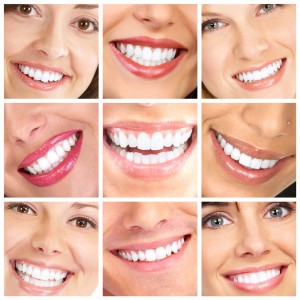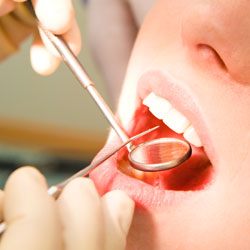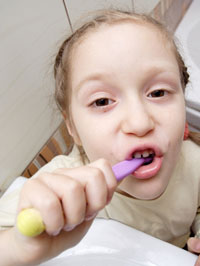 High blood pressure, also called HBP or hypertension, can affect your ability to receive oral healthcare. Performing dental treatments on patients with hypertension can be detrimental! If your blood pressure is too high, many dentists won’t schedule procedures until you receive a health assessment from your medical doctor.
High blood pressure, also called HBP or hypertension, can affect your ability to receive oral healthcare. Performing dental treatments on patients with hypertension can be detrimental! If your blood pressure is too high, many dentists won’t schedule procedures until you receive a health assessment from your medical doctor.
What is high blood pressure?
The two forces measured for your blood pressure reading are the blood pumping out of your heart and into your arteries (systolic), and the heart resting between beats (diastolic). Normal blood pressure readings for a healthy individuals who are 20 years and older should be below 120 for systolic and below 80 for diastolic. If blood pressure readings are consistently higher than 120/80 then you’re probably suffering from hypertension.
According to Heart.org, the website of the American Heart Association, “Untreated high blood pressure damages and scars your arteries.” High blood pressure increases risks of blood clots, organ damage, heart attacks, and strokes. High blood pressure also results increased plaque build-up and weakening blood vessels.
How does high blood pressure affect my dental health?
In a white paper released by the American Diagnostic Corporation, it states: “…elevations of blood pressure can increase a patient’s risk of experiencing a stroke or myocardial infarctions in the dental chair.” Patients with hypertension can also be in danger from local anesthetics that use vasoconstrictors, such as epinephrine, which increase blood pressure and heart arrhythmia.
High blood pressure medications can also affect your dental wellbeing. Some prescriptions cause dry mouth and may also alter your sense of taste. Meds with calcium blockers can also create gum overgrowth, which can affect a patient’s ability to chew and may require periodontal surgery to correct.
Will my dentist still treat me if I have high blood pressure?
Most dentists will not treat patients who have high blood pressure, especially if your numbers are in the Stage 1 or higher range for hypertension. (View the chart at the American Heart Association’s website.) If you’re being treated for high blood pressure, it’s important for you to discuss your condition and your medications with your dentist before beginning any treatments. Most patients being treated for high blood pressure can still have dental procedures, take anti-anxiety medications (often used for oral conscious sedation), and safely receive local anesthetics.
 Nearly 80% of American adults suffer from gum disease! Gum disease can devastate your oral health, causing serious dental problems. In fact, the number one reason for adult tooth loss in the United States is untreated gum disease. Worse, though, is the effect that gum disease can have on your heart health.
Nearly 80% of American adults suffer from gum disease! Gum disease can devastate your oral health, causing serious dental problems. In fact, the number one reason for adult tooth loss in the United States is untreated gum disease. Worse, though, is the effect that gum disease can have on your heart health. You already know how important brushing and flossing are for the health of your smile. But did you also know that certain foods can benefit your oral health too? Any number of specific foods can be beneficial, but today we’re targeting just a few general foods or drinks that can help you.
You already know how important brushing and flossing are for the health of your smile. But did you also know that certain foods can benefit your oral health too? Any number of specific foods can be beneficial, but today we’re targeting just a few general foods or drinks that can help you. Nineteenth century novelist George Eliot once said, “Wear a smile and have friends; wear a scowl and have wrinkles.”
Nineteenth century novelist George Eliot once said, “Wear a smile and have friends; wear a scowl and have wrinkles.” Why are we discussing cancer on a dental newsletter? Because dental health affects your overall health, and your smile is your dentist’s business. Oral Cancer is a little discussed cancer that is on the rise, despite the overall decline in cancer rates. Why? Awareness. Many people simply don’t talk about oral cancer. Your dentist wants to change that.
Why are we discussing cancer on a dental newsletter? Because dental health affects your overall health, and your smile is your dentist’s business. Oral Cancer is a little discussed cancer that is on the rise, despite the overall decline in cancer rates. Why? Awareness. Many people simply don’t talk about oral cancer. Your dentist wants to change that. American Dental Association has set aside to encourage dentists, parents, and other adults to educate children on how to take care of their little smiles. And even though that’s more than a week away, it never hurts to get a head start! Now’s the time to help kids brush up on good oral health!
American Dental Association has set aside to encourage dentists, parents, and other adults to educate children on how to take care of their little smiles. And even though that’s more than a week away, it never hurts to get a head start! Now’s the time to help kids brush up on good oral health!
 Quick! Make a mental list of habits that have an impact on your dental health.
Quick! Make a mental list of habits that have an impact on your dental health. Do you ever feel like circumstances are spinning out of your control? You’re not the only one. If there’s one thing we all have in common fairly often, it’s that stressful situations can occupy our minds and sap our energy. Not only that, stress can actually compromise your health. If you are stressed, it’s more likely that you’ll grind your teeth during sleep. While this bit of information has been around for a while, a
Do you ever feel like circumstances are spinning out of your control? You’re not the only one. If there’s one thing we all have in common fairly often, it’s that stressful situations can occupy our minds and sap our energy. Not only that, stress can actually compromise your health. If you are stressed, it’s more likely that you’ll grind your teeth during sleep. While this bit of information has been around for a while, a  Dental caries (cavities) is the most prevalent childhood disease, and 90% of adults have had a cavity. Gum disease is responsible for 70% of adult tooth loss. A few simple habits could help you reduce your risk for cavities and gum disease – and improve your potential for keeping natural teeth long into your golden years. Kids and adults alike can benefit from these 5 quick and easy oral health tips. Some you’ve known since kindergarten, while others may be news.
Dental caries (cavities) is the most prevalent childhood disease, and 90% of adults have had a cavity. Gum disease is responsible for 70% of adult tooth loss. A few simple habits could help you reduce your risk for cavities and gum disease – and improve your potential for keeping natural teeth long into your golden years. Kids and adults alike can benefit from these 5 quick and easy oral health tips. Some you’ve known since kindergarten, while others may be news.